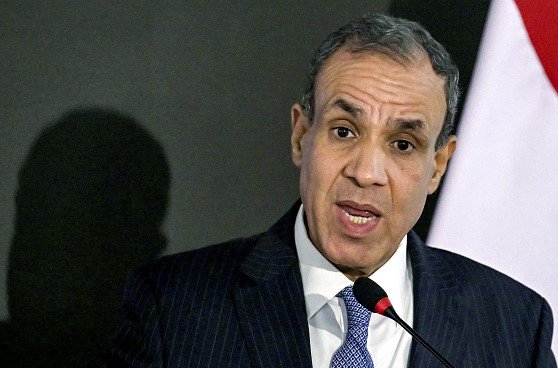Foreign Minister Badr Abdelatty says Cairo working on short-term deal that could open door to broader political process as tensions with Israel simmer
Egypt’s top diplomat said on Sunday that Cairo is close to brokering a 60-day ceasefire in Gaza, a move aimed at pausing months of relentless bloodshed. But Foreign Minister Badr Abdelatty also sent a warning—if Israel resumes military action after any truce, the entire region could spiral into deeper instability.
In a nationally televised interview, Abdelatty said the temporary halt is part of a broader plan. The idea is to give space for a transition into a more permanent political process. His remarks come amid growing anxiety in Cairo that the war is starting to erode Egypt’s long-standing peace agreement with Israel, even as the government says it’s still committed to it.
The message was clear: if the guns go silent and then roar back, Egypt won’t stay silent.
Ceasefire Talks Are Back, But This Time the Stakes Are Higher
Abdelatty wasn’t vague. He said Egypt is pushing hard for a 60-day ceasefire in Gaza. It’s not just about stopping the missiles. It’s about buying time for a deeper fix.
“This proposed truce isn’t the end goal,” he said, sitting stiffly during the interview, voice calm but heavy. “It’s the necessary pause before something more sustainable.”
The ceasefire plan reportedly includes:
-
A temporary halt to all military activity for two months
-
Increased humanitarian aid access into Gaza
-
A framework for prisoner exchanges between Hamas and Israel
One Egyptian official, who asked not to be named, said mediators have received verbal agreement in principle from Hamas, but Israel’s response has been more cautious, particularly after the collapse of earlier U.S.-brokered talks in April.

Egypt Warns of Fallout If Israel Breaks the Deal Again
It’s not just about getting a deal signed. It’s about making sure it sticks.
Abdelatty brought up the January 19 truce that Israel allegedly violated just days later. He said a repeat of that kind of breakdown could set the region ablaze. And this time, Egypt is taking that seriously.
“We need real, enforceable safeguards,” Abdelatty said. “Everyone—including our partners in Washington—must understand that a ceasefire must be credible and durable.”
The foreign minister didn’t specify what consequences might follow another breakdown, but his tone suggested Egypt is weighing its options.
One sentence stood out.
“If aggression resumes again under any excuse, the entire regional balance will be in danger.”
Relations with Israel Under Strain Despite Peace Treaty
Asked directly about Egypt’s peace treaty with Israel, signed back in 1979, Abdelatty said Cairo still respects the deal. “We are committed to all its obligations,” he said.
But then he paused.
“The current situation, especially the extreme brutality in Gaza and the West Bank, is testing that commitment.”
It wasn’t a threat. But it was more than just diplomatic language. Egypt’s patience is thinning.
Abdelatty pointed to recent settler violence and airstrikes that have left hundreds of civilians dead. He said those actions are pushing bilateral ties to the brink. Egypt hasn’t recalled its ambassador or suspended diplomatic channels, but public anger in Cairo has been mounting.
Just last week, demonstrators gathered outside the Israeli embassy in Giza, waving Palestinian flags and demanding a boycott. Security forces dispersed them quickly, but the message hit home.
The U.S. Is Quietly Backing Egypt’s Truce Proposal
While the Biden administration hasn’t publicly endorsed Egypt’s 60-day plan, several senior White House officials have privately expressed support, according to people familiar with the matter.
“Washington understands the need for a reset,” said a former U.S. diplomat who previously worked in Tel Aviv and Cairo. “But they also don’t want to be seen as too soft on Netanyahu.”
The White House has reportedly asked Egypt to include verifiable mechanisms in the truce proposal—things like international monitors, transparent aid channels, and pre-agreed prisoner exchange lists.
According to Abdelatty, the Americans are on board in principle, especially after the CIA’s own back-channel efforts stalled.
One Egyptian intelligence official said negotiators from Qatar and Turkey were also involved. But “Cairo is leading,” the official added bluntly.
War Fatigue Growing on Both Sides of the Border
Inside Israel, there’s also a growing chorus of voices calling for a ceasefire. Not out of sympathy, but exhaustion.
Over 250 Israeli soldiers have died since October, and thousands of reservists remain deployed. The cost of war is mounting, both financially and politically.
In Gaza, meanwhile, it’s sheer devastation. The UN says over 32,000 people have been killed, and nearly 80% of the population is now dependent on food aid. Entire neighborhoods in Khan Younis and Rafah have been flattened.
A UN official described the current situation in Gaza as “almost post-apocalyptic,” adding, “We’re not talking about rebuilding homes anymore. We’re talking about re-digging graves.”
One local reporter in Cairo put it bluntly: “Egypt doesn’t want to break ties with Israel. But it also doesn’t want to be seen as complicit in what’s happening next door.”
Here’s a quick look at the military toll and diplomatic timeline:
| Date | Key Event | Outcome |
|---|---|---|
| Jan 19, 2025 | Ceasefire announced | Broken by Israel days later |
| Apr 6, 2025 | U.S.-led talks collapse | No new truce |
| Jun 30, 2025 | Egypt pushes 60-day ceasefire | Awaiting final Israeli reply |
What Happens Next Could Define Egypt’s Role in the Region
Egypt is no stranger to brokering truces between Israel and Palestinian factions. But this one feels heavier. More fragile. More consequential.
And it’s not just about Gaza. It’s about Cairo’s status as the Middle East’s unofficial diplomatic backbone. If this truce fails, Egypt could lose more than face—it could lose its influence.
For now, the ball is in Israel’s court. And all eyes are on July 1, when the proposal is expected to be formally presented through backchannel talks in Doha.
